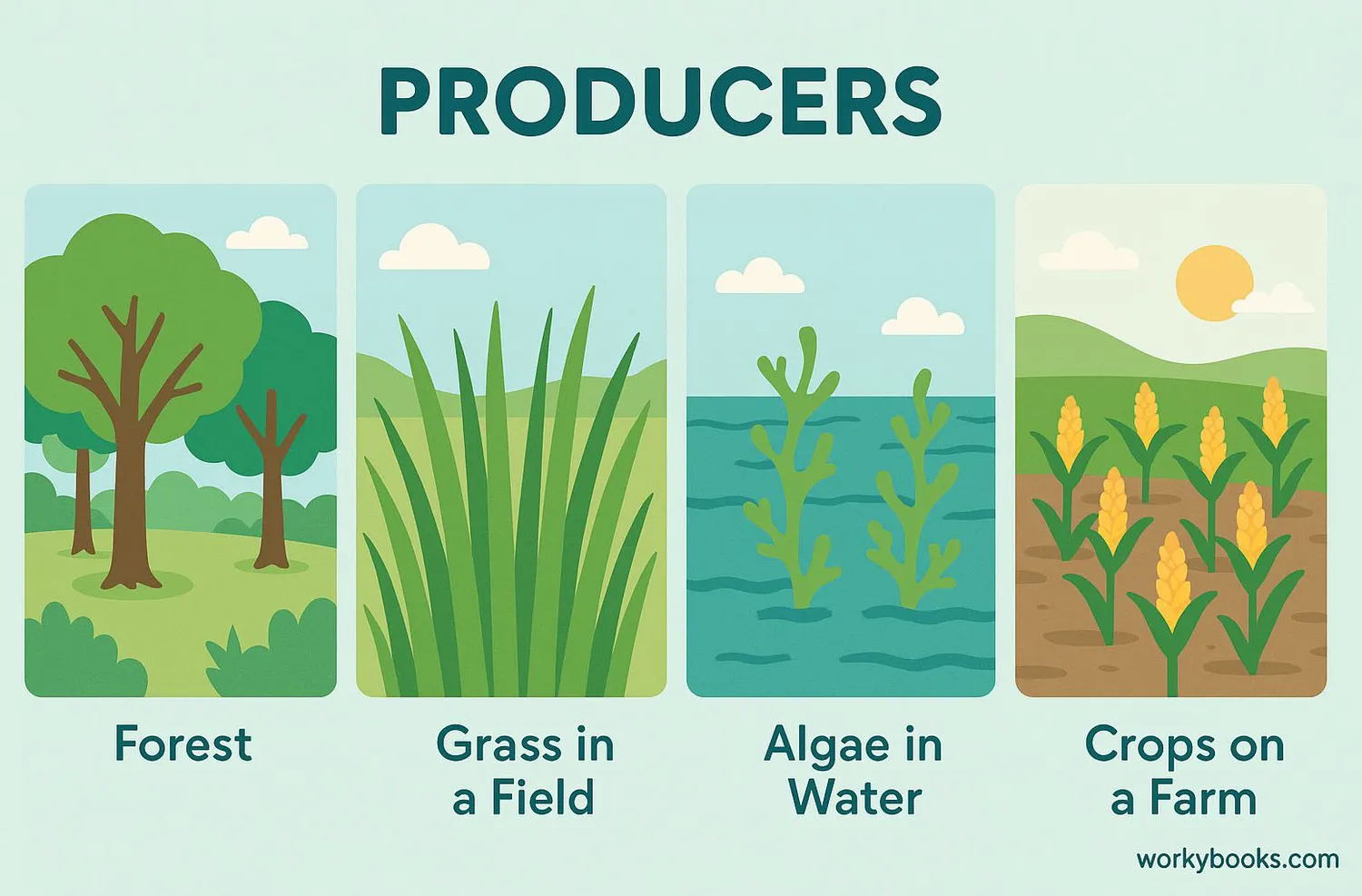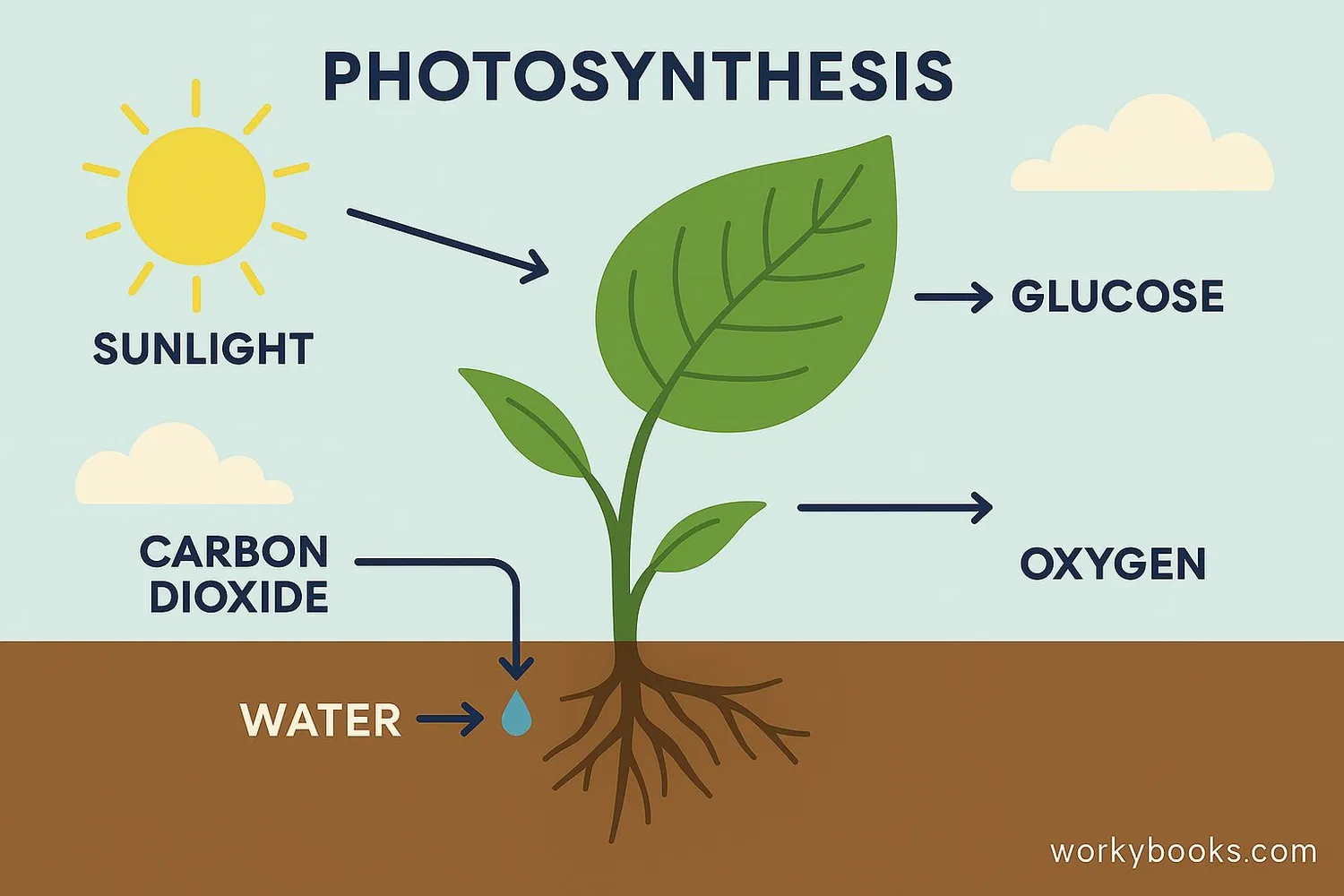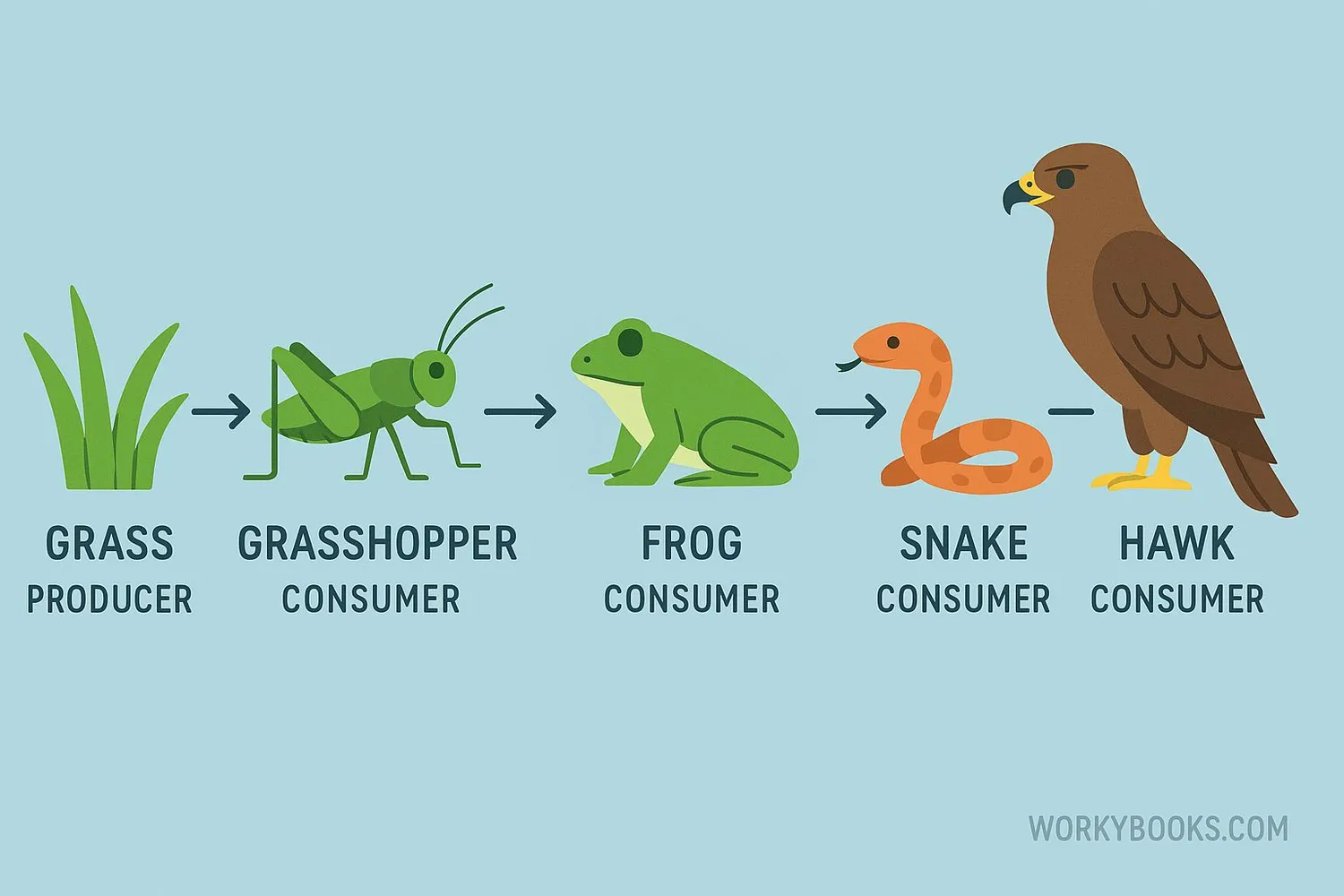Producer - Definition, Examples, Quiz, FAQ, Trivia
Discover how producers create energy and form the foundation of all food chains
What is a Producer?

Producers are living things that make their own food using sunlight! They are the foundation of every food chain on Earth. Producers are also called autotrophs, which means "self-feeders" in Greek.
Plants are the most common producers, but other organisms like algae and some bacteria are producers too. They use a special process called photosynthesis to create their own food from sunlight, water, and carbon dioxide.
Without producers, all other living things wouldn't have the energy they need to survive. They truly are nature's food factories!
Key Producer Facts
• Producers make their own food through photosynthesis
• They form the base of every food chain
• Plants are the most common producers
• Producers provide energy for all other organisms
• Without producers, life on Earth wouldn't exist!
How Producers Work

Producers create their own food through a remarkable process called photosynthesis. This is how they transform sunlight into chemical energy that living things can use.
Here's how photosynthesis works step by step:
Sunlight Capture
Leaves absorb sunlight using green chlorophyll
Water Uptake
Roots absorb water from the soil
Gas Exchange
Carbon dioxide enters through leaf pores
Food Creation
Sunlight energy converts water and CO₂ into glucose
Oxygen Release
Plants release oxygen as a byproduct
The chemical formula for photosynthesis is:
6CO₂ + 6H₂O + Sunlight → C₆H₁₂O₆ + 6O₂
Which means: Carbon Dioxide + Water + Sunlight → Glucose + Oxygen
Amazing Producer Fact!
Producers in the ocean make about 70% of Earth's oxygen! Tiny phytoplankton in the sea are responsible for most of the oxygen we breathe.
Importance in Ecosystems

Producers play the most important role in any ecosystem. They form the foundation that supports all other life. Here's why they're so crucial:
Food Chain Base
All food chains start with producers that provide energy for consumers
Oxygen Production
Producers release oxygen through photosynthesis
Nutrient Cycling
They help recycle nutrients through ecosystems
Without producers, ecosystems would collapse because:
• There would be no food source for animals
• Oxygen levels would drop dramatically
• Carbon dioxide would build up in the atmosphere
• Habitats would disappear for many organisms
Producers are essential for maintaining the balance of nature and supporting all life on Earth!
Producer Quiz
Test your knowledge about producers with this interactive quiz! Answer all 5 questions to see how much you've learned.
Frequently Asked Questions
Here are answers to common questions about producers:
Fun Producer Trivia
Discover some amazing facts about producers!
Giant Producers
General Sherman, a giant sequoia tree, is the largest producer on Earth! It stands 275 feet tall and is over 2,000 years old. This single tree produces enough oxygen for two people every day!
Ocean Producers
The smallest producers are phytoplankton - microscopic algae in the ocean. Even though they're tiny, together they produce about 50-85% of the oxygen in Earth's atmosphere!
Desert Survivors
Cacti are amazing desert producers. They store water in their stems and perform photosynthesis at night to conserve water. Some cacti can live for over 200 years!
Ancient Producers
The first producers appeared on Earth about 3.5 billion years ago! These were cyanobacteria that began performing photosynthesis and changed Earth's atmosphere by adding oxygen.





